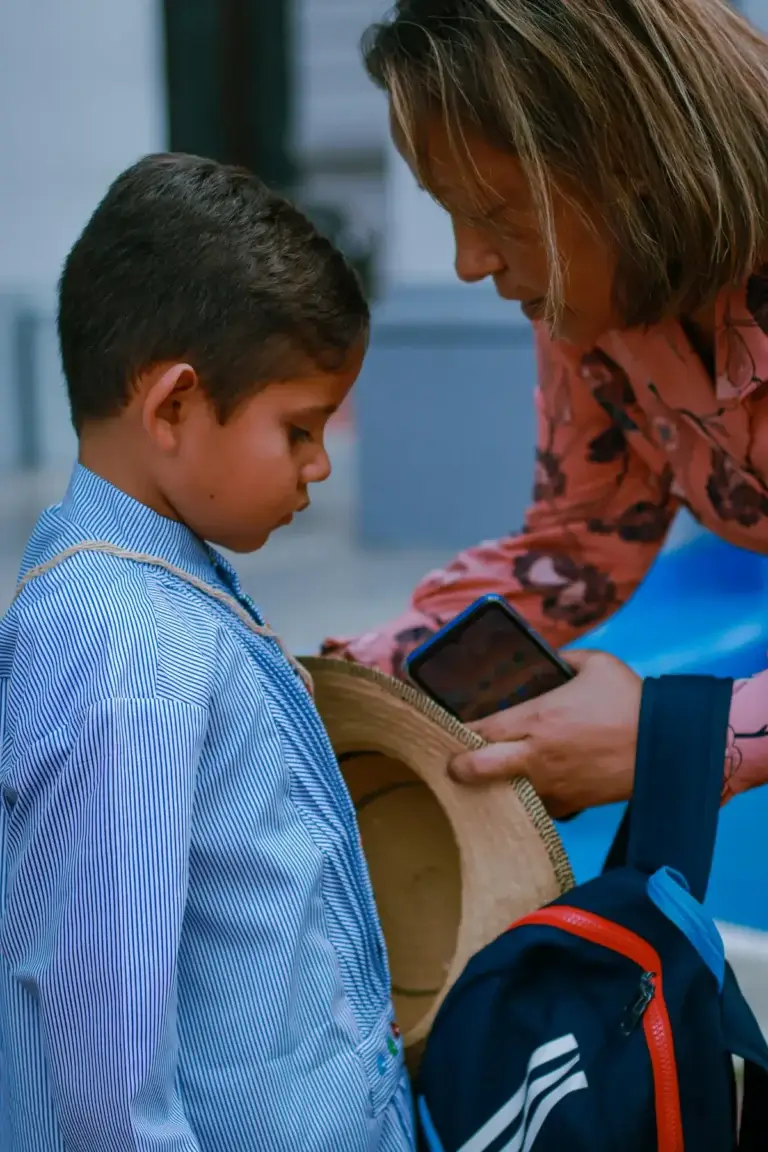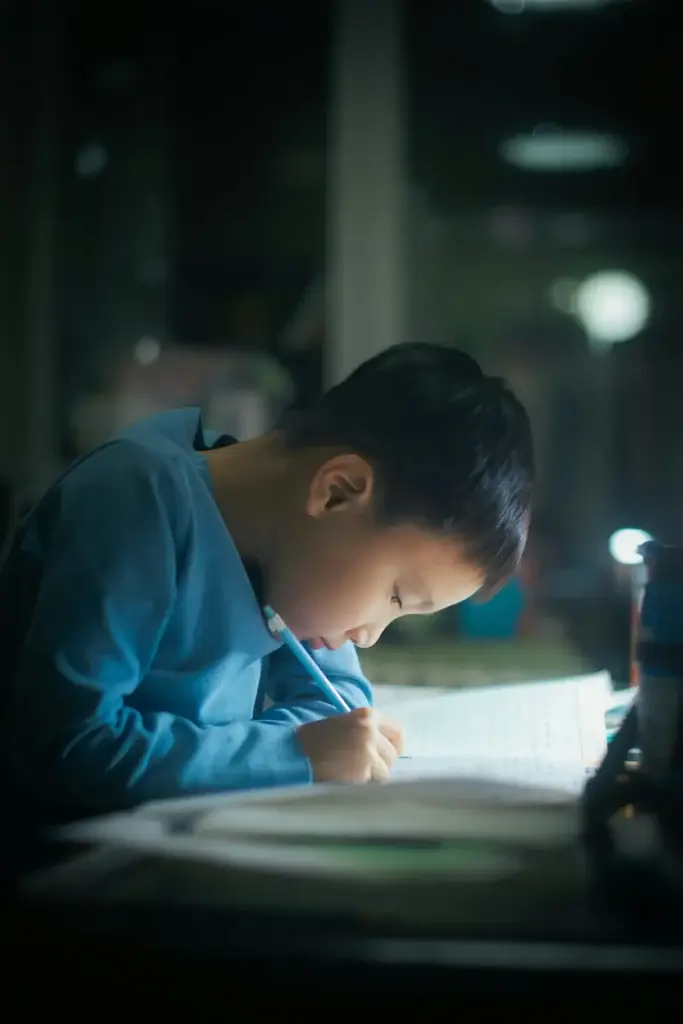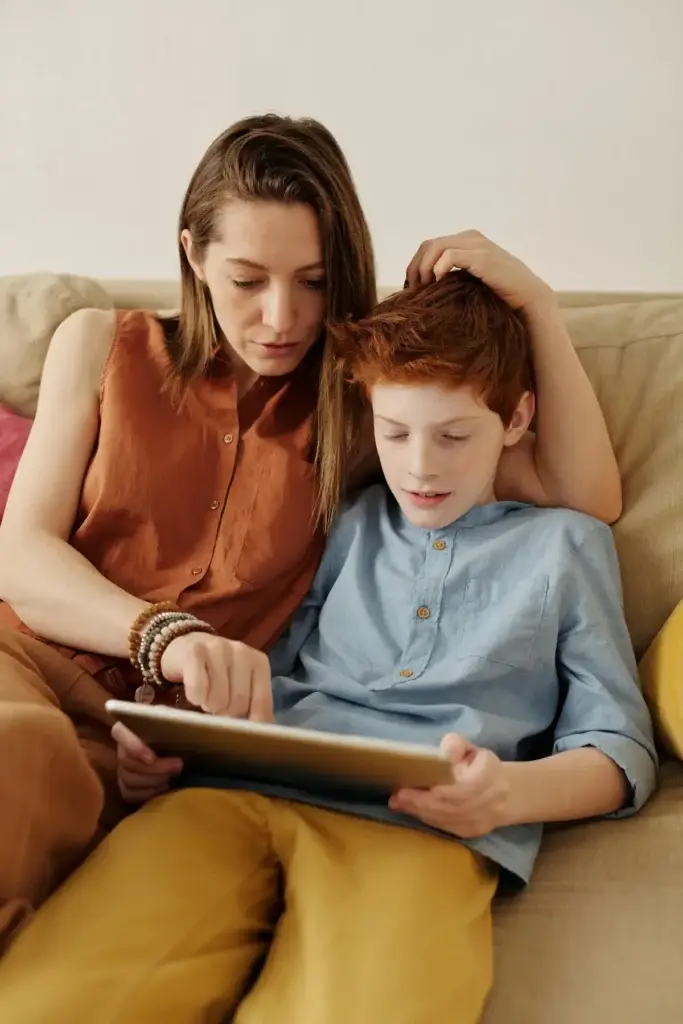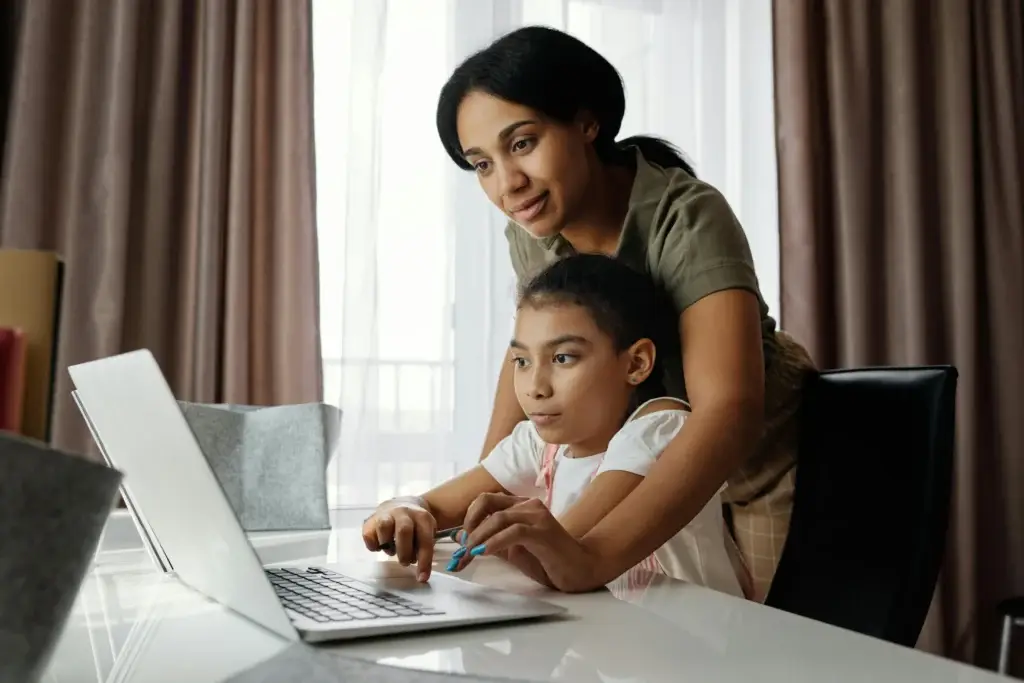What to expect emotionally and how to ease the transition for both of you
For your family, the end of summer might feel like both a relief and a challenge.
The long days are winding down.
You may be craving more routine – or dreading the pressure of holding everything together again.
Maybe your child is looking forward to school but suddenly getting more emotional or irritable. Maybe you are too.
Back-to-school season brings more than supply lists and packed lunches. For many families, it’s also a time of back to school anxiety, emotional overwhelm, and mental health stress.
This guide explores how to support your child’s mental health as they return to school, and how to spot the signs that they may need extra care.
Why the Back-to-School Transition Feels So Hard
- Younger children becoming more clingy or worried about being away from home
- Older kids getting overwhelmed by academic pressure, social stress, or change in expectations
- Kids with sensory needs or anxiety feeling overstimulated or withdrawn
These shifts are common. Kids may not say “I’m feeling anxious,” but they’ll show it in ways like tummy aches, irritability, resistance, or shutdowns.
These behaviors may be your child’s way of showing back to school anxiety, especially if they don’t yet know how to name or explain their emotions.
This is a kind of life change that can benefit from emotional support, for both kid and parents. Read more on our Life Transitions Therapy services.

Build Routine One Step at a Time
One of the most helpful ways to ease into the school year is by gently bringing back some structure. Summer tends to be more flexible – bedtimes shift, meals are more relaxed, and mornings often start late. But kids thrive on predictable rhythms, especially during transitions.

Try easing in by:
- Adjusting bedtime and wake-up times gradually a week or two before school starts
- Practicing the morning routine, including packing lunches, choosing clothes, or walking through what the day might look like
- Creating small daily rituals like breakfast together, a short walk, or a calming playlist in the car
Predictable routines support the nervous system and reduce overwhelm during transitioning from summer to school. For kids with sensory needs or anxiety, routines can provide an important sense of safety.
Help Them Name What They Feel
Kids don’t always have the words to express what’s going on inside. Instead, feelings of stress or worry might show up as irritability, defiance, or complaints like “I feel sick.”
Support them by:
- Asking open-ended questions, like “What are you most curious or unsure about this school year?”
- Reflecting what you see, like “You got really quiet when we started talking about tomorrow. That’s okay. I’m here.”
- Normalizing their experience, by sharing your own school memories or nervous moments
By helping your child name their emotions, you’re giving them tools to move through them. This builds emotional resilience and can help prevent school refusal in children before it escalates.
Protect Time to Rest and Recharge
The first few weeks of school can be exhausting. Your child may be doing well on the outside but still holding in a lot of stress. That emotional pressure has to go somewhere – and often, it shows up at home.

You might notice:
- More screen-time requests, as a way to decompress
- Outbursts or meltdowns right after school
- Changes in energy or loss of interest in usual activities
Protecting downtime helps your child regulate and reduces their risk of burnout during school transitions.
Add Simple Check-Ins to Your Day
You don’t need an hour-long talk to support your child’s emotional needs. Small, thoughtful check-ins build connection and trust.
You can try:
- “One good thing and one hard thing from your day”
- A simple “thumbs up / down / sideways” to reflect their mood
- Visual tools like mood charts, worry jars, or drawing
These moments reinforce emotional safety, which is a protective factor during stressful transitions.

Supporting Your Child’s Mental Health During Back-to-School Season
Mental health support doesn’t need to wait until something goes wrong. In fact, early support often helps prevent deeper challenges later in the year.
Pay attention to signs such as:
Ongoing school refusal or panic in the mornings
Trouble sleeping, eating, or concentrating
Withdrawal from friends or favorite activities
Frequent stomachaches or headaches with no clear cause
Negative self-talk or perfectionism
Therapy can be especially helpful for anxiety and emotional overwhelm. Learn more about our Anxiety and Stress Therapy services.
You're Navigating This Too
Back-to-school is not just a transition for your child. It’s a shift for you as well. You may be managing logistics, schedules, emotional ups and downs, and your own reactions.
At Renewed Wellness Counseling, we support families who want real, practical help navigating change. Whether your child is showing signs of anxiety or you just need support yourself, we’re here to meet you where you are – with care that’s flexible, thoughtful, and rooted in real life.









